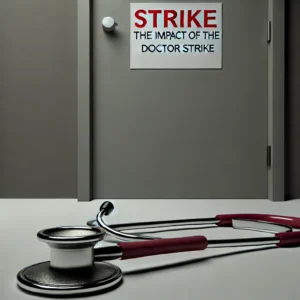
What Sparked the Korea Doctor Strike?
The most recent wave of doctor strikes in South Korea was triggered by the government’s proposal to reform the medical education system. The proposed reforms include:
- Increase in Medical School Admissions: The government plans to increase the number of medical students by 4,000 over the next 10 years to address the shortage of doctors, especially in rural areas.
- Establishment of Public Medical Schools: To address the disparity in healthcare services between urban and rural areas, the government proposed the establishment of new public medical schools.
- Expansion of Telemedicine Services: In response to the COVID-19 pandemic, the government has also been pushing for the expansion of telemedicine, which some doctors fear might undermine their practice.
These proposals, while aimed at improving access to healthcare, have met with strong opposition from medical professionals. Doctors argue that the government’s plans could lead to a decline in the quality of medical education, overburden the healthcare system, and ultimately compromise patient care.
The Impact of the Doctor Strike
The doctor strike has had a significant impact on South Korea’s healthcare system:

- Disruption of Medical Services: Many hospitals have faced disruptions due to the strike, particularly in non-emergency surgeries and outpatient services. Patients requiring specialized care have been the most affected.
- Delayed Treatments: With many resident doctors and medical students participating in the strike, treatments for chronic and complex conditions have been delayed, leading to growing frustration among patients.
- Public Health Concerns: The timing of the strike has also raised concerns, as South Korea continues to manage the ongoing challenges posed by the COVID-19 pandemic. The strike has put additional strain on the healthcare system at a critical time.
- Government Response: In response to the strike, the South Korean government has taken measures such as issuing back-to-work orders and considering legal actions against striking doctors. However, these actions have only deepened the divide between the government and the medical community.
Why Are Doctors Opposing the Reforms?
The opposition from doctors stems from several concerns:
- Quality of Education: Doctors worry that increasing the number of medical students without a corresponding increase in training resources and facilities could dilute the quality of medical education.
- Overburdened System: There is also a fear that an influx of new doctors could overburden the existing healthcare infrastructure, leading to lower standards of care.
- Telemedicine Concerns: Many doctors are skeptical about the expansion of telemedicine, fearing it could lead to reduced patient interactions and lower-quality care.
- Rural vs. Urban Divide: While the government’s intentions to address rural healthcare shortages are well-meaning, doctors argue that simply increasing the number of doctors without addressing the underlying issues, such as poor working conditions in rural areas, will not solve the problem.
The Broader Implications
The Korea doctor strike has highlighted the need for a more comprehensive approach to healthcare reform in the country. For the government, it’s a delicate balancing act between addressing immediate healthcare needs and ensuring the long-term sustainability of the system. For doctors, it’s a matter of maintaining the standards of their profession while ensuring that any reforms genuinely improve healthcare outcomes.

This strike could potentially reshape South Korea’s healthcare landscape in the following ways:
- Policy Revisions: The government may need to revisit its reform proposals, potentially leading to a more collaborative approach with the medical community.
- Healthcare Access: If reforms are implemented carefully, they could lead to better healthcare access in underserved areas. However, if not, they might exacerbate existing issues.
- Public Trust: The strike and its aftermath could either strengthen or weaken public trust in the healthcare system, depending on how the situation is resolved.
- Global Attention: The strike has also attracted international attention, providing a case study on how countries can (or cannot) navigate healthcare reforms in the face of professional opposition.
Conclusion
The Korea doctor strike is a significant event with far-reaching consequences for the country’s healthcare system. As South Korea continues to grapple with these challenges, the outcome of this strike could set a precedent for future healthcare reforms, not just in Korea but globally. It’s a complex issue that requires careful consideration from all stakeholders involved—government, healthcare professionals, and the public.
![]()
By staying informed and engaged with these developments, we can better understand the intricacies of healthcare reform and the vital role that medical professionals play in shaping the future of health services.
Tablo’s Heartfelt Admiration for Hyeri: A Touching Moment on “Hyeri’s Club”

